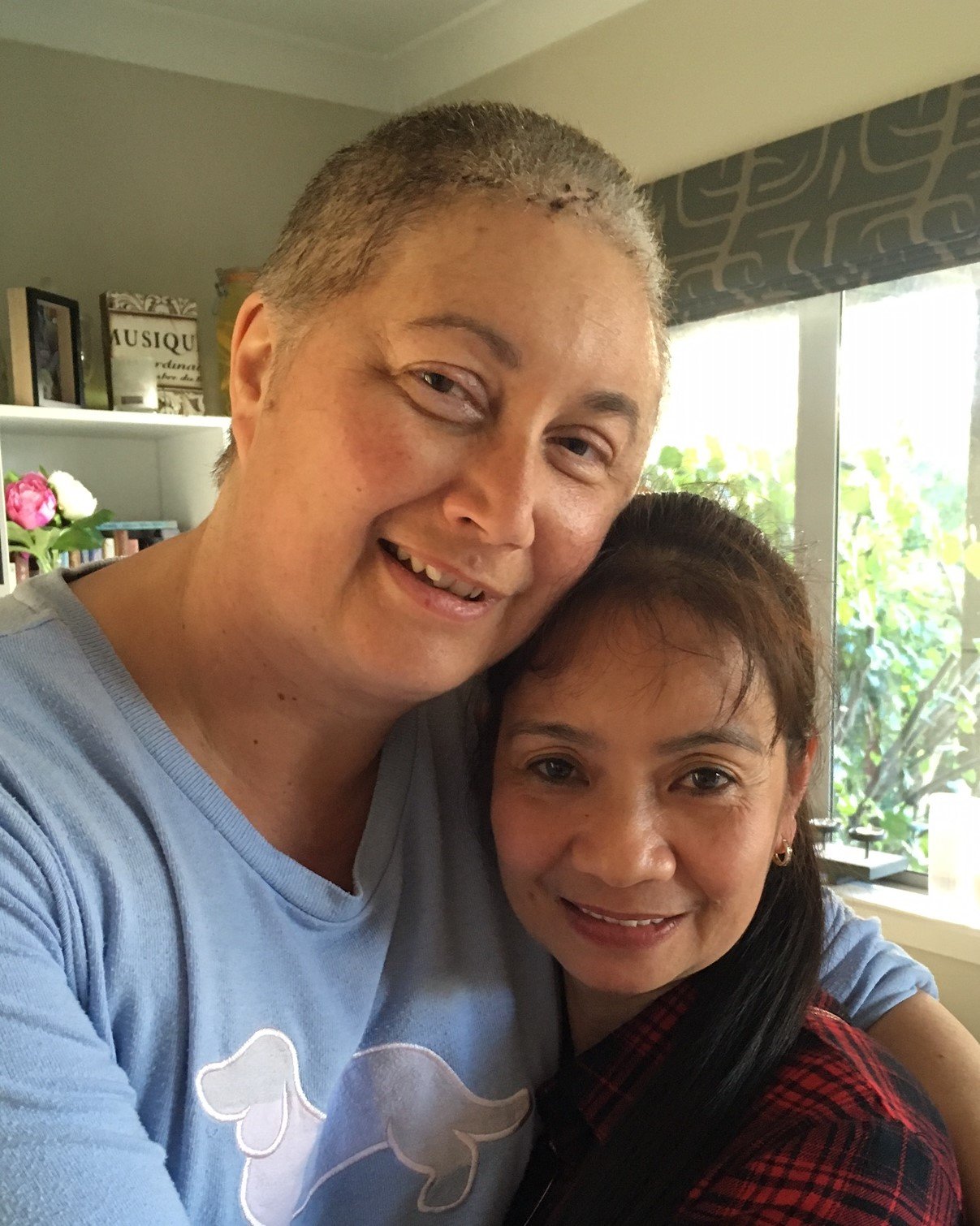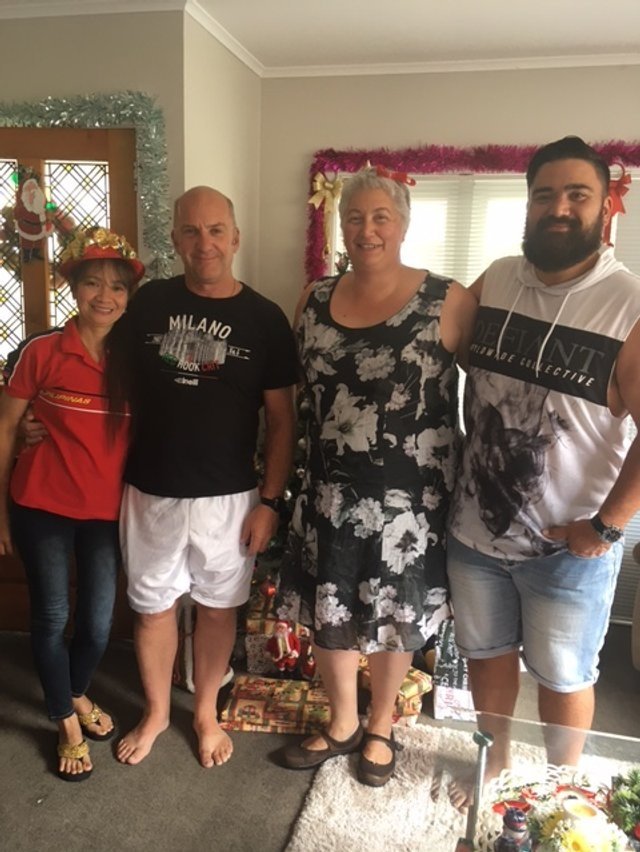Volunteer Spotlight - Pauline Wood
Brain Wave, December 2021
Pauline Wood
Pauline Wood, 52 of Auckland, is a brain tumour survivor and a Support Friend volunteer at Brain Tumour Support NZ. In this Volunteer Spotlight article, Pauline shares her experience of being both a health professional working with brain injuries and a brain tumour patient.
Pauline Wood, following surgery to remover her meningioma in 2018
My main life experience has been working in live theatre productions in both New Zealand and the UK, and more recently through my work as an occupational therapist (OT). I graduated in 2017 as an OT passionate about acquired brain injuries (ABI). I worked mainly with mature adults with Alzheimer’s, Parkinson’s, challenges with balance, etc. I enjoy working with people.
However, in October 2018, another adventure began with the surprise diagnosis of a brain tumour the size of a naval orange in my left temporal lobe. The next day I had surgery to remove the tumour (I don’t remember much about that weekend, funny that!) which led to the diagnosis of a grade 2 meningioma. This has damaged my Wernicke area, which is challenging at times, including: understanding what’s being said; naming of objects; and reading. I also regularly experience mental fatigue and resting in the afternoon helps me through the day.
Pauline (3rd from left) with Headway Harmonies music group in Auckland
Currently, I am not able to work, however, I have kept up my OT registration and have been learning Tai Chi under the Dr Paul Lam Tai Chi for Health programme which has assisted my balance (which is still interesting at times), movement and mental health. I have since become an instructor and run a weekly class (currently over Zoom) as a volunteer for Headway Brain Injury Auckland. I have also just completed a Postgraduate Diploma in Health Science (yay!) at Auckland University of Technology (AUT) majoring in Rehabilitation. I recently ran a Tai Chi class over Zoom with Massey University (Auckland) for ‘Mental Health Awareness Week’. I ran one earlier this year in person for ‘Holistic Wellbeing Awareness Week’ which was well received.
My first haircut by my sister-in-law, Elena, on hospital discharge day. (My brother took about a week to get used to this idea when I mentioned shaving my head while in hospital).
I am a member of some ABI groups including: Brain Tumour Support NZ, Headway Brain Injury Auckland and AUT Traumatic Brain Injury Network. I have also been invited to share my ongoing recovery story at AUT in person and over Zoom during some OT student tutorials. I regularly attend our monthly BTSNZ Survivor Group on Zoom and have found this incredibly helpful during recovery, plus you never know who you might meet. Four of us have formed a coffee group, the Brain Girls, and still meet up on Zoom monthly (due to lockdown, as we don’t live too far away from each other).
During last year, I was asked if I would like to be a Support Friend for someone going through a brain tumour diagnosis, surgery, and rehab. Of course I said “Yes!” From personal experience, research and talking with other people, there is certainly a lack of understanding of what we go through, especially long term, and how this may not only effect you personally, but also family, friends, and work colleagues. My passion is: raising awareness of acquired brain injury (ABI) (including brain tumours); neuroplasticity (having fun while rewiring your brain); and lack of support regarding chronic rehabilitation services in NZ for people with an ABI.
From L to R: Elena (sister-in-law), Antony (brother), Pauline and Michael (nephew), Christmas 2020
When I first became aware of my diagnosis, my first thought was ‘this is a gift’. I immediately recognised that I was in the unique position of being a health professional and a patient/client. Plus, to find out and discover who/what is out there to help us through our challenges. I have an amazing older brother who, with his family, have supported me greatly on this journey, along with some incredible friends and relatives. Both our parents have passed away, Dad from prostate/ bone cancer, and Mum from Alzheimer’s. These brain tumour experiences affect everyone differently.
Becoming a BTSNZ Support Friend volunteer is a wonderful and exciting role to choose. If you are thinking of becoming a Support Friend, and you feel you are ready, just ask the people at BTSNZ. Being a Support Friend has enriched my life. I feel very humble listening to others and not being put into a box. Also, letting people know that they are not on their own and that living a ‘new normal’ is challenging but normal. There is a huge gap out there for support, and part of this may be due to people not being aware of how prevalent brain tumours are.
This is truly an incredible adventure to be on and to be a part of.
Pauline Wood





